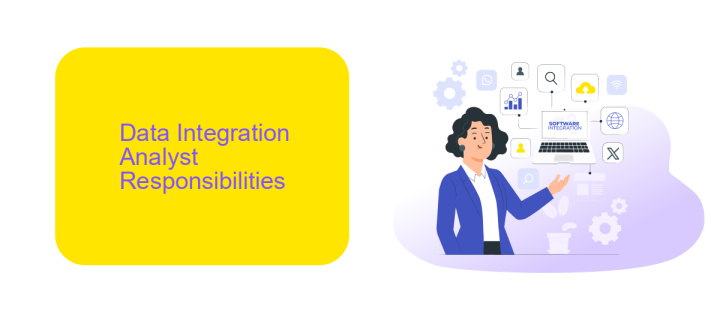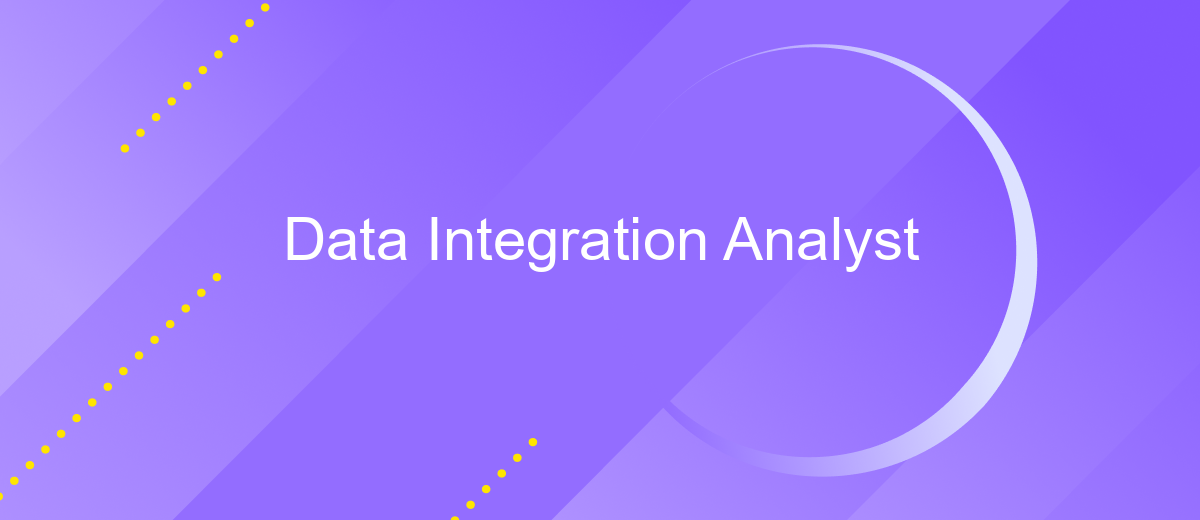Data Integration Analyst
A Data Integration Analyst plays a crucial role in today's data-driven world by ensuring seamless data flow between various systems and platforms. This position involves analyzing, designing, and implementing data integration solutions that enhance business operations and decision-making processes. With a strong focus on data accuracy and consistency, Data Integration Analysts help organizations unlock the full potential of their data assets.
Introduction
Data Integration Analyst Responsibilities

A Data Integration Analyst is responsible for designing, implementing, and managing data integration solutions that streamline data flow across various systems. They work closely with stakeholders to understand data requirements and ensure seamless data migration and integration. This role involves analyzing data sources, mapping data fields, and developing integration workflows to ensure data accuracy and consistency. The analyst must also monitor and troubleshoot integration processes, resolving any issues that arise to maintain the integrity of the data.
Additionally, a Data Integration Analyst utilizes tools and platforms such as ApiX-Drive to automate and optimize data integration tasks. By leveraging such services, they can set up and manage integrations efficiently, reducing manual effort and minimizing errors. The analyst also documents integration processes and provides training and support to end-users, ensuring they understand how to use the integrated systems effectively. Continuous improvement is a key aspect of the role, as the analyst seeks to enhance data integration strategies to support the organization's evolving needs.
Skills and Qualifications

To excel as a Data Integration Analyst, one must possess a blend of technical and analytical skills, along with a deep understanding of data management principles. This role requires the ability to seamlessly integrate data from various sources and ensure its accuracy and accessibility.
- Proficiency in SQL and database management systems.
- Experience with ETL tools and processes.
- Strong analytical and problem-solving skills.
- Knowledge of data warehousing concepts.
- Familiarity with integration platforms like ApiX-Drive.
- Excellent communication and teamwork abilities.
- Attention to detail and a commitment to data quality.
In addition to technical expertise, a successful Data Integration Analyst must be adept at collaborating with cross-functional teams to understand data requirements and deliver effective solutions. Familiarity with tools like ApiX-Drive can significantly streamline the integration process, making it easier to connect various data sources and automate workflows.
Industry Trends and Challenges

Data integration is rapidly evolving, driven by advancements in technology and the growing demand for seamless data flow across various platforms. Companies are increasingly relying on integrated data to make informed decisions and enhance operational efficiency. This trend is particularly significant in industries such as healthcare, finance, and retail, where real-time data access is crucial.
However, the landscape of data integration presents several challenges. One of the primary issues is ensuring data quality and consistency across different sources. Additionally, the integration of legacy systems with modern applications can be complex and time-consuming. Security concerns also play a critical role, as integrated systems often handle sensitive information that must be protected from breaches.
- Ensuring data quality and consistency
- Integrating legacy systems with modern applications
- Addressing security and compliance issues
- Managing the complexity of real-time data integration
Tools like ApiX-Drive are becoming essential for businesses looking to simplify the integration process. ApiX-Drive offers a user-friendly platform that enables seamless data integration between various applications, reducing the technical burden on IT teams and ensuring that data flows smoothly and securely across the organization.
Career Outlook and Salary Expectations
The career outlook for Data Integration Analysts is promising, driven by the increasing need for businesses to consolidate and analyze data from various sources. As companies continue to adopt more complex data ecosystems, the demand for professionals who can seamlessly integrate and manage this data is expected to grow. This role is especially critical in industries such as healthcare, finance, and e-commerce where data integration can significantly impact operational efficiency and decision-making processes.
Salary expectations for Data Integration Analysts can vary based on experience, location, and the complexity of the data systems they manage. On average, entry-level positions start around ,000 per year, while experienced analysts can earn upwards of 0,000 annually. Additionally, familiarity with integration tools like ApiX-Drive can enhance a candidate's marketability, as these platforms streamline the process of connecting disparate systems, thereby increasing overall productivity and reducing operational costs.
FAQ
Time is the most valuable resource for business today. Almost half of it is wasted on routine tasks. Your employees are constantly forced to perform monotonous tasks that are difficult to classify as important and specialized. You can leave everything as it is by hiring additional employees, or you can automate most of the business processes using the ApiX-Drive online connector to get rid of unnecessary time and money expenses once and for all. The choice is yours!

